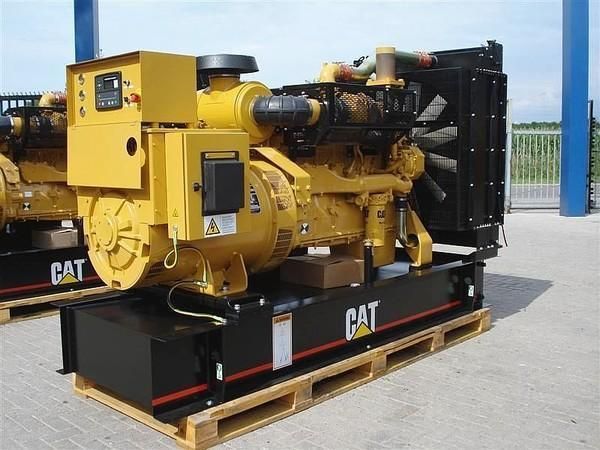From Factories to Hospitals: Where Large kVA Generators Make the Difference

The need for reliable backup power spans every sector of society, but nowhere is it more critical than in environments where downtime has far-reaching consequences. From industrial factories producing essential goods to hospitals providing life-saving care, large kVA generators are the backbone of resilience. In the UK, where energy stability cannot always be guaranteed, businesses and public services alike invest in high-capacity generators to ensure continuity. Among the most common solutions are 200kVA generators, which strike the right balance between strength, efficiency, and dependability for a wide range of demanding applications.
Why Large kVA Generators Are Essential
Large kVA generators are designed for one purpose: to deliver uninterrupted power to sites where failure is not an option. While smaller generators are well-suited to homes and small businesses, the demands of industrial and healthcare operations require something more robust. The sheer volume of equipment that must remain operational in these settings means only high-capacity machines can meet the challenge.
Factories rely on heavy machinery, conveyor systems, motors, and computer-controlled equipment, all of which draw significant loads. Hospitals must keep lighting, heating, ventilators, imaging devices, and refrigeration running without interruption. In both cases, the kVA rating of the generator determines whether the facility can function smoothly during a power outage. Large units such as 200kVA generators provide the assurance that critical systems will not be compromised, offering peace of mind for organisations that simply cannot afford a power cut.
The Role of 200kVA Generators in Industrial Factories
Factories across the UK are becoming increasingly automated, with complex machinery requiring stable and continuous power. In these settings, downtime is not only inconvenient but extremely costly. Every hour a factory sits idle due to a power outage can result in lost revenue, wasted materials, and missed deadlines.
A 200kVA generator is often the ideal solution for medium-sized factories. It provides enough power to run multiple large machines while maintaining capacity for lighting, heating, ventilation, and IT systems. Larger factories may require generators exceeding 500kVA, but 200kVA units are often chosen as either standalone solutions for smaller plants or as part of a parallel generator setup in bigger facilities.
Reliability is key here. Diesel-powered 200kVA generators are particularly favoured in UK industry because of their fuel efficiency and ability to run continuously under heavy loads. With proper maintenance, they offer a long service life, ensuring factories can safeguard productivity against unexpected blackouts or planned grid outages.
Hospitals and the Need for Reliable Backup
Hospitals represent one of the most demanding environments for backup power. Patient safety, the operation of essential equipment, and even the preservation of vital medicines all depend on uninterrupted electricity. In this context, large kVA generators are not a luxury but a necessity.
A hospital cannot risk even a few seconds of downtime, which is why backup generators are often paired with uninterruptible power supply systems. A 200kVA generator can support critical areas such as emergency rooms, intensive care units, and operating theatres. In larger hospitals, multiple units or higher-capacity machines are installed, but the principle remains the same: reliable power must be guaranteed.
One of the defining features of hospital-grade generators is their ability to respond quickly. They are designed to start within seconds of a grid failure, ensuring there is no break in the supply of electricity to life-saving machines. For this reason, diesel generators in the 200kVA range are a trusted solution across the UK healthcare sector, where reliability quite literally saves lives.
Powering Data Centres and Communications
Another sector heavily reliant on large kVA generators is data management and communications. Data centres store critical information for businesses, governments, and organisations, while communication networks keep the UK connected. Outages in these facilities can have nationwide impacts, affecting everything from online services to banking systems.
Generators rated at 200kVA or higher are regularly used to support data centre operations. Their ability to deliver consistent, stable power ensures servers remain active and cooling systems continue to run. Without sufficient backup, overheating and shutdowns could result in catastrophic data loss or service disruption. With digital infrastructure now central to daily life, the reliability of large generators has never been more important.
Construction Sites and Temporary Power
Large generators are not only valuable in permanent installations but also play a key role in temporary settings such as construction sites. Many building projects in the UK require reliable power before permanent electrical connections are established. Cranes, lifts, lighting, and heavy machinery must all run without interruption, making high-capacity generators essential.
On construction sites, 200kVA generators are often deployed as they offer the flexibility to support multiple systems simultaneously. Their portability also makes them practical, as units can be transported between sites or moved to where demand is greatest. Contractors depend on these machines to keep projects on schedule, knowing that lost time due to power shortages can escalate costs and delay completion.
Events, Entertainment, and Large Venues
The entertainment industry also relies on large generators, particularly for outdoor events and stadiums. Concerts, sporting events, and festivals demand huge amounts of energy for sound systems, lighting rigs, and video displays. The reliability of power in these scenarios is not just about performance but also safety.
A 200kVA generator can comfortably power large event infrastructure, ensuring audiences experience uninterrupted entertainment. In venues such as theatres and sports arenas, standby generators provide a safety net in case of grid issues. Without these systems, events could be cancelled or disrupted, leading to significant financial losses and damage to reputation.
Fuel Efficiency and Long-Term Reliability
One of the reasons diesel-powered 200kVA generators are so widely adopted in the UK is their balance of fuel efficiency and high output. Large generators must often run for extended periods, sometimes days at a time during prolonged outages. Diesel engines excel in this regard, delivering consistent performance with lower fuel consumption than petrol alternatives.
Reliability also extends to storage. Diesel fuel is less volatile than petrol, meaning it can be stored safely for longer without degrading. For facilities such as hospitals or factories that maintain on-site reserves, this stability ensures the generator will perform when required, even after months of inactivity.
Maintenance and Serviceability
Large generators demand regular servicing to maintain reliability. For units in the 200kVA range, this typically includes oil changes, filter replacements, fuel system checks, and load testing. While this maintenance is more involved than smaller models, it is a small price to pay for the peace of mind provided by continuous reliability.
Partnering with a trusted supplier and service provider makes all the difference. Companies such as Bellwood Rewinds in the UK specialise in supplying, maintaining, and refurbishing generators of all sizes. Their expertise ensures that whether a generator is used daily in an industrial environment or kept on standby for emergencies, it remains ready to deliver when called upon.
The Economic Benefits of Large Generators
While the upfront investment in a 200kVA generator or larger may be significant, the long-term benefits often outweigh the costs. For factories, the ability to continue production during outages prevents revenue losses and protects supply chains. For hospitals, reliable power ensures operational continuity, safeguarding patient care. For construction and events, avoiding downtime protects schedules and financial outcomes.
When viewed in this context, the reliability and durability of large kVA generators become a form of insurance. They protect organisations against the unpredictable and allow operations to continue seamlessly, regardless of grid conditions.
Looking Ahead: The Future of High-Capacity Generators
As the UK continues to modernise its energy infrastructure, large generators will remain a cornerstone of resilience. Advances in technology are already making diesel units cleaner and more efficient, while hybrid systems that combine traditional generators with renewable energy sources are beginning to emerge. Yet even with these changes, the fundamental requirement remains the same: reliable power, delivered without compromise.
For now, 200kVA generators represent one of the most practical and dependable solutions for a wide range of sectors, from factories to hospitals and beyond. Their ability to provide consistent, efficient, and safe backup power makes them indispensable wherever continuity is critical.



